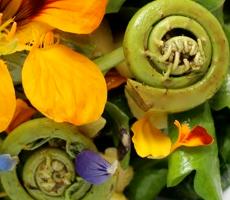Cinnamon Fern {3 1/2 in. Pots, min 25}
|
|
Osmunda cinnamomea (AKA O. bipinnata, O. imbricata, Osmundastrum cinnamomeum, Anemia bipinnata, 'glandulosa', Cinnamon Brake, Buckhorn Brake)
Pronunciation: oz-MUN-dah sin-ah-MOH-mee-ah
Product: 2056
Product: 2056
Shipping description: This product cannot be shipped to AZ, CA, NV, OR, or WA
FREE SHIPPING!
| 25 - 249: $9.97 each | 250 - 999: $9.47 each | 1000 - 2499: $9.00 each | 2500 - 4999: $8.81 each | 5000 - 9999: $8.52 each | 10000 - 19999: $8.05 each | 20000+: $7.58 each |
|
[ How many plants do I need? ] |
|||
|
|||
 (0)
(0)
 Part sun
Part sun  Shade
Shade
